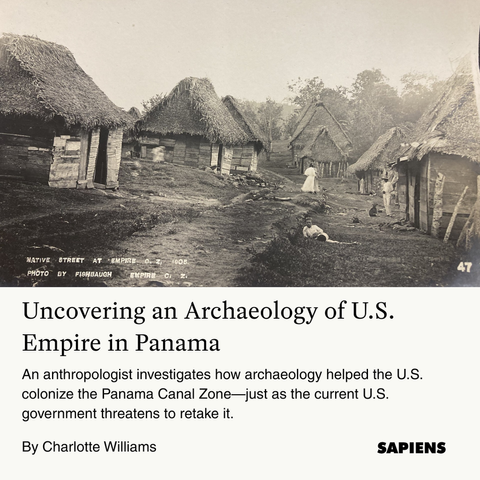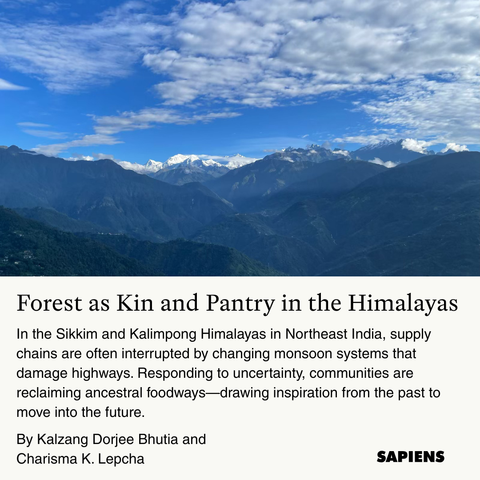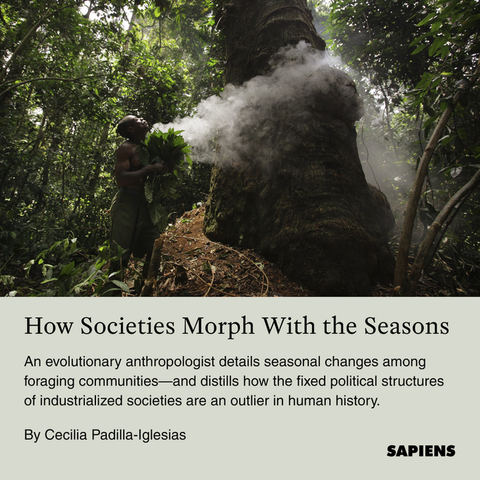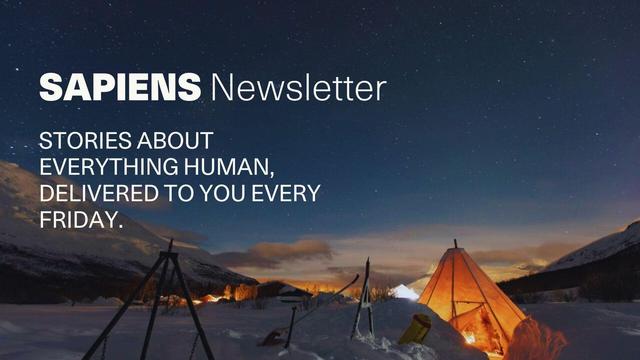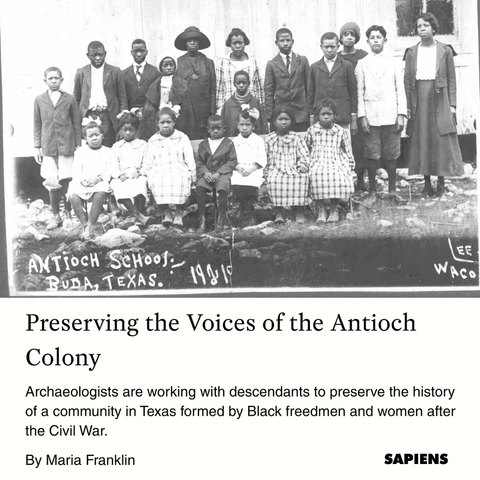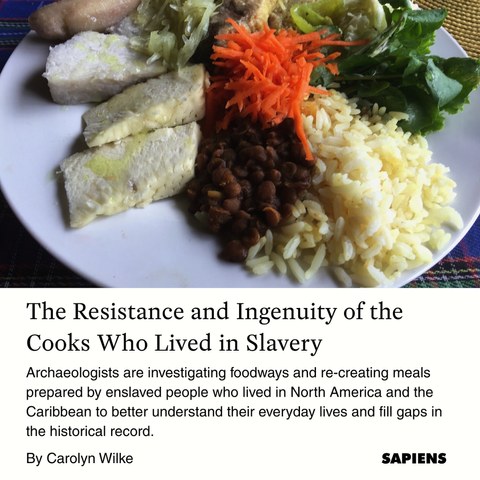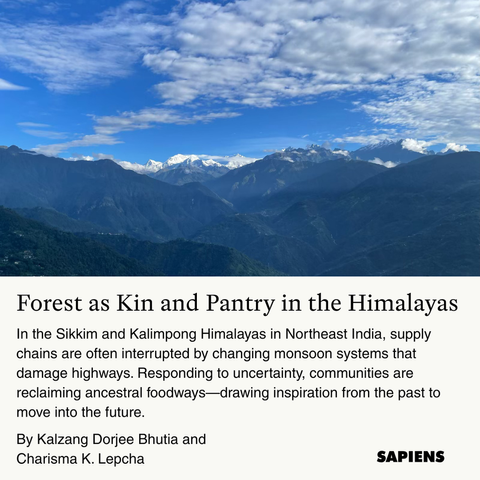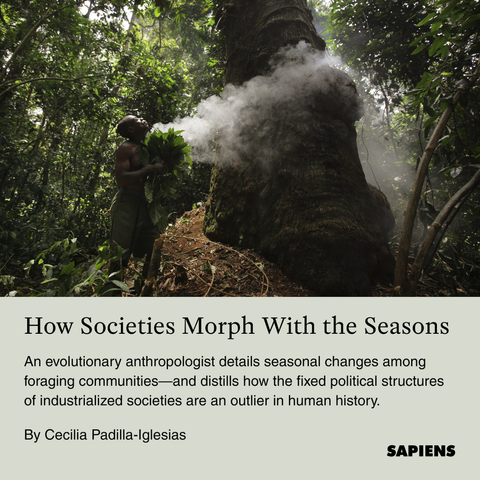From the archive. An evolutionary anthropologist draws lessons from paleogenetic’s journey from Jurassic Park fiction to Nobel Prize reality. Read more: https://www.sapiens.org/biology/ancient-dna-paleogenetics/
A digital magazine about everything human, told through the stories of anthropologists. Join us at www.sapiens.org and subscribe to our newsletter www.sapiens.org/newsletter.
“By tracing how ... archaeological objects were taken from their contexts, and where they traveled, we can start to understand how U.S. imperialism jumbles historical landscapes—and contemporary ones.”
Read more: https://www.sapiens.org/archaeology/panama-canal-zone-archaeology-american-imperialism/
From the archive. How did an ancient internment site in Russia challenge us to rethink how Paleolithic humans in Europe treated their dead and organized their societies? Read more: https://www.sapiens.org/archaeology/paleolithic-burial-sunghir/
“I had long been interested in the ongoing war that had uprooted my family. ... Researching the DMZ ... has been a way to come to terms with this history.”
On the 75th anniversary of the Korean War, an anthropologist discusses its personal significance:
https://www.sapiens.org/culture/korean-dmz-estuary-politics-war-borders-diaspora/
From the archive. In the Brazilian Amazon, a university-trained archaeologist and Wajãpi Indigenous people understand traces from the past differently—but their partnership bears fruit for both. Read more: https://www.sapiens.org/archaeology/indigenous-knowledge-archaeology-amazon-brazil/
From the archive. How do maritime archaeologists handle marine life? Read more: https://www.sapiens.org/archaeology/san-miguel-island-sea-lions/
Share your insights with a broad audience by harnessing the power of public writing! SAPIENS' Public Writing Modules offer a step-by-step guide, from crafting a pitch and telling a story to cultivating healthy writing habits. https://www.sapiens.org/training/introduction/
From the archive. In Ecuador, Shuar people, an Indigenous group in the region, face increasing threats to their ways of life from industrial mining. But some find strength and courage to resist through knowledge gained by using hallucinogenic plants. Read more: https://www.sapiens.org/culture/ecuador-mining-shuar-indigenous-resistance/
“Rather than viewing resources in an extractive, capitalistic way, we celebrate local food sources.”
Read more: https://www.sapiens.org/culture/indigenous-food-sovereignty-himalayas-climate-crisis/
From the archive. “One day in 1899, Wang Yirong, a famous scholar of ancient scriptures, noticed that a bone fragment floating in his herbal soup had some interesting scribbles on it." Read more: https://www.sapiens.org/archaeology/chinese-oracle-bones-history/
“No social order is inevitable. No structure of power or inequality is fixed. Adaptability has defined our species since its origins.”
Read more: https://www.sapiens.org/biology/foragers-seasonality-social-change-flexibility-societies/
From the archive. Meet the animal innovators: dolphins using sponges for protection, bees warding off predators with dung, and ants crafting leaf tools for food transport. Read more:https://www.sapiens.org/archaeology/archaeology-tool-user-intelligence/
Stay on top of SAPIENS’ latest stories and learn about what’s happening in the field of anthropology with our weekly newsletter.
📝 Sign up here: https://www.sapiens.org/newsletter/
From the archive. One museum’s saga of returning stolen vigango statues to Kenya reveals how repatriating sacred objects is both the right thing and a very hard thing to do. Read more: https://www.sapiens.org/archaeology/vigango-repatriation/
“At a time when the U.S. is deeply divided by racial strife, economic insecurity, and the uncertainties of what the future holds, the tales of our forebears serve to remind us of what is possible in challenging times.”
Read more: https://www.sapiens.org/archaeology/antioch-colony-texas/
“Slavery endeavored to stamp out the culture and identities of enslaved people. ... Yet African people held onto their foodways.”
Read more: https://www.sapiens.org/archaeology/enslaved-people-foodways/
From the archive. Breakthrough treatments can now cure sickle cell anemia in the U.S. But the pricey therapies will hardly help in Nigeria, where social changes could do more for millions impacted by the disease. Read more: https://www.sapiens.org/biology/sickel-cell-treatment-fda/
“Rather than viewing resources in an extractive, capitalistic way, we celebrate local food sources.”
Read more: https://www.sapiens.org/culture/indigenous-food-sovereignty-himalayas-climate-crisis/
From the archive. A Kashmiri poet-anthropologist records the restless despair many feel under Indian occupation. Read more: https://www.sapiens.org/culture/earlier-i-had-nightmares-now-i-have-insomnia-poem-toiba-naseema/
“No social order is inevitable. No structure of power or inequality is fixed. Adaptability has defined our species since its origins.”
Read more: https://www.sapiens.org/biology/foragers-seasonality-social-change-flexibility-societies/
